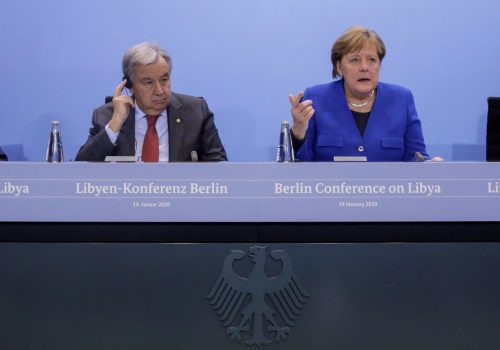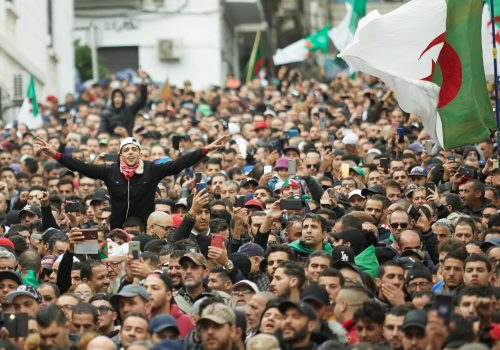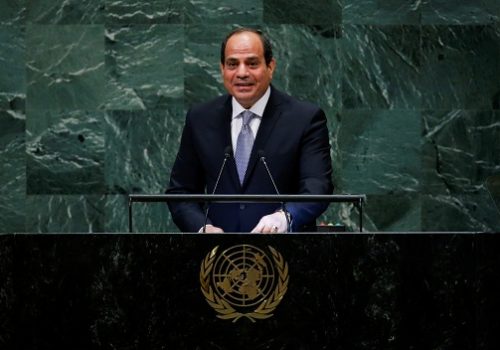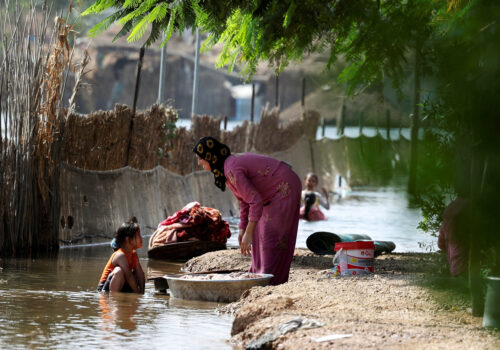Recommended Reading
Events
All Content
Alessia Melcangi is a nonresident senior fellow with the North Africa Program at the Atlantic Council’s Rafik Hariri Center and Middle East Programs, associate professor of contemporary history of North Africa and the Middle East at the Department of Social Sciences and Economics at the Sapienza University of Rome, associate research fellow at the Italian Institute for International Political Studies (ISPI) in Milan, associate fellow and member of the scientific committee of the Med-Or Italian Foundation, Rome.
She is also deputy director of the Master in Migration and Development, La Sapienza University of Rome and faculty member of the Master in Middle Eastern Studies (MIMES), Catholic University of the Sacred Heart in Milan.
She has been member of several working groups in Track-2 programs sponsored by the Italian Ministry of Foreign Affairs and International Cooperation on the contemporary Libyan political, economic and security dynamics and on the issue of religious freedom and human rights in the Middle East. She has been visiting research fellow at the Centre d’Études et de Documentation Économiques, Juridiques et Sociales (CEDEJ) in Cairo and at the Dominican Institute for Oriental Studies (IDEO) in Cairo.
Her research is mainly into conflict and governance in the Middle East and North Africa; geopolitics and international relations in the Euro-Mediterranean area; identity and polarization dynamics in the contemporary Middle East; political and social issues in contemporary Egypt and Libya. Regarding these issues she has published several monographs, peer review articles in Italian and international journals and policy papers for international think tanks.
Relevant publications:
Statehood, nationalism and minorities in the Middle East: patterns of resistance and integration (Ledizioni, Milano 2018);
The Copts during Nasser’s time. Between politics and religion (1952-1970) (Carocci, Roma 2017) (with Karim Mezran);
Truly a Proxy War? Militias, Institutions and External Actors in Libya between Limited Statehood and Rentier State, The International Spectator, 2022;
“Egypt and Turkey’s Geopolitical Relations in a Troubled Middle East: What Can Be Improved and How”, in Mezran K., Menotti R., Melcangi A., Badi E, Pavia A.;
North Africa’s transatlantic relations amid change and continuity, Atlantic Council, September 2022;
“Chaos in the heart of the Mediterranean: the Libyan crisis from the fall of al-Qadhafi’s Jamāhīriyya to the present war (2011-2020)”, in F.M. Corrao, R. Redaelli (eds), States; Actors and Geopolitical Drivers in the Mediterranean, Palgrave Macmillan, London 2021
States, Actors and Geopolitical Drivers in the Mediterranean, Palgrave Macmillan, London 2021;
“The Re-Sectarization of the Middle East: Minorities, Communities and Identity Politics within the Current Geopolitical Confrontation”, in Ida Caracciolo, Umberto Montuoro (eds);
Protection of Cultural and Religious Minorities Leadership for International Peace and Security, Giappichelli Editore, Torino 2019.





